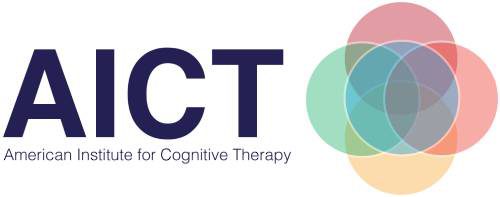Treatment for College Students and Young Adults
Common Problems in Emerging Adulthood
The time between high school and your 30s is a time of rapid change and transition. Decisions need to be made about career, relationships, and what kind of person you’d like to be. These decisions often come with anxiety, uncertainty, and self-doubt. Some common problems associated with the period of “emerging adulthood” are the following:
Anxiety
This is the most common mental health diagnosis among college students, and more than half of all college students visit college clinics to seek treatment for anxiety. Symptoms can include uncontrollable worry, feeling restless or on edge, difficulty concentrating, physical symptoms such as racing heart or shakiness, and more. If you find yourself worrying a lot about multiple different things, you might be dealing with clinical levels of anxiety.
Avoidance
Many young adults struggle with avoidance in academic, employment, and social environments. This can look like procrastination, difficulty making decisions, avoidance of new situations, or trouble staying “on top” of obligations, which can lead to feelings of shame or a sense of feeling stuck.
Depression
This is another incredibly common difficulty for individuals in their 20s and 30s and can be related to a variety of factors, such as challenges with work, friends, family, romantic relationships, and/or a chemical imbalance. Individuals with depression typically experience low mood, difficulties with motivation, and negative thoughts, and they may also experience physical symptoms such as feeling very tired or changes in appetite.
Loneliness
Whether it’s finding friends at college, moving to a new place post-college, or adjusting to a new social dynamic as friendships change throughout your 20s and 30s, finding and maintaining a sense of belonging can be a challenge, and loneliness is a pervasive side effect.
Identity formation
It is very normal for emerging adults to experience confusion around their identity, including as it relates to professional development, values and goals, and the type of person they want to be as an adult.
Family Issues
There can be difficulties encountered with family members when young adults move back in with parents after college. Conflict can also arise as young adults seek to balance their new independence and responsibilities with family relationships.
Dating and Relationships
Emerging adulthood is often a time for pursuing dating and romantic relationships. Relationship issues, frustrations with dating, and other concerns related to romance and sexuality are common topics to be addressed in therapy.
Young Adult Services at AICT
The American Institute for Cognitive Therapy offers individual, family, and group sessions to help young adults:
- Improve social and romantic relationships
- Redefine family relationships
- Identify life values
- Sort through career options
- Cope with the emotions associated with this time of transition
Services are tailored to your unique needs and goals. You and your psychologist will decide what kind of treatment makes sense for you.
AICT staff who work with young adults:
 Melissa D. Horowitz, PsyD., Director of Clinical Training, Director of Eating Disorders and Weight Management Program, is a New York State licensed psychologist with extensive experience in cognitive behavior therapy (CBT), dialectical behavior therapy (DBT), social problem-solving, motivational interviewing and mindfulness-based approaches. She works with adolescents, college students, adults and families. Dr. Horowitz specializes in the treatment of eating disorders (binge eating disorder, bulimia, anorexia) and body-image and weight-management issues in both men and women. She also specializes in the treatment of mood disorders (depression, bipolar disorder), anxiety disorders (generalized anxiety, social anxiety, separation anxiety, panic disorder, phobias), and obsessive compulsive and related disorders (trichotillomania, skin-picking, body-dysmorphic disorder). Additional areas of expertise include insomnia, grief, procrastination, perfectionism, substance abuse, personality disorders and chronic health issues. Dr. Horowitz has been intensively trained in working with individuals struggling with regulating their emotions, impulsivity, poor problem-solving skills, interpersonal conflicts and self-injury.
Melissa D. Horowitz, PsyD., Director of Clinical Training, Director of Eating Disorders and Weight Management Program, is a New York State licensed psychologist with extensive experience in cognitive behavior therapy (CBT), dialectical behavior therapy (DBT), social problem-solving, motivational interviewing and mindfulness-based approaches. She works with adolescents, college students, adults and families. Dr. Horowitz specializes in the treatment of eating disorders (binge eating disorder, bulimia, anorexia) and body-image and weight-management issues in both men and women. She also specializes in the treatment of mood disorders (depression, bipolar disorder), anxiety disorders (generalized anxiety, social anxiety, separation anxiety, panic disorder, phobias), and obsessive compulsive and related disorders (trichotillomania, skin-picking, body-dysmorphic disorder). Additional areas of expertise include insomnia, grief, procrastination, perfectionism, substance abuse, personality disorders and chronic health issues. Dr. Horowitz has been intensively trained in working with individuals struggling with regulating their emotions, impulsivity, poor problem-solving skills, interpersonal conflicts and self-injury.
 Nicholas Demas, Ph.D., is a New York State licensed psychologist with a broad range of experience in cognitive behavioral therapy (CBT), acceptance and commitment therapy (ACT), and dialectical behavior therapy (DBT). He specializes in working with adults with PTSD, anxiety, mood, and personality disorders, and has extensive experience treating OCD and depression. Dr. Demas is a national certified Provider of Cognitive Processing Therapy for PTSD. Dr. Demas received his Ph.D. in Clinical Psychology from Hofstra University. Following his initial externship at AICT, he worked with inpatients diagnosed with severe Schizophrenia, Schizoaffective Disorder, and comorbid substance abuse at Creedmoor Psychiatric Center. Dr. Demas completed his pre-doctoral internship at Waianae Coast Comprehensive Health Center, a federally designated facility that provides behavioral health treatment to the medically underserved and demographically diverse communities in the Leeward and Central regions of Oahu. Dr. Demas then completed a one-year postdoctoral residency the Honolulu VA, where he worked exclusively with Combat Veterans and Service Members diagnosed with PTSD, and specialized in providing Cognitive Processing Therapy (CPT) and Prolonged Exposure Therapy (PE). Dr. Demas also provided Trauma-Informed Guilt Reduction (TrIGR) group therapy to residential patients, and conducted a study that explored the effects of guilt and shame on PTSD symptom severity.
Nicholas Demas, Ph.D., is a New York State licensed psychologist with a broad range of experience in cognitive behavioral therapy (CBT), acceptance and commitment therapy (ACT), and dialectical behavior therapy (DBT). He specializes in working with adults with PTSD, anxiety, mood, and personality disorders, and has extensive experience treating OCD and depression. Dr. Demas is a national certified Provider of Cognitive Processing Therapy for PTSD. Dr. Demas received his Ph.D. in Clinical Psychology from Hofstra University. Following his initial externship at AICT, he worked with inpatients diagnosed with severe Schizophrenia, Schizoaffective Disorder, and comorbid substance abuse at Creedmoor Psychiatric Center. Dr. Demas completed his pre-doctoral internship at Waianae Coast Comprehensive Health Center, a federally designated facility that provides behavioral health treatment to the medically underserved and demographically diverse communities in the Leeward and Central regions of Oahu. Dr. Demas then completed a one-year postdoctoral residency the Honolulu VA, where he worked exclusively with Combat Veterans and Service Members diagnosed with PTSD, and specialized in providing Cognitive Processing Therapy (CPT) and Prolonged Exposure Therapy (PE). Dr. Demas also provided Trauma-Informed Guilt Reduction (TrIGR) group therapy to residential patients, and conducted a study that explored the effects of guilt and shame on PTSD symptom severity.
 Dr. Ashleigh Rutherford, Ph.D., is a postdoctoral fellow at the American Institute for Cognitive Therapy. She received her bachelor’s degree in English and Psychology from Amherst College and a PhD in Clinical Psychology from Yale University. Dr. Rutherford has extensive training in Cognitive Behavioral Therapy (CBT), Dialectical Behavior Therapy (DBT), and Acceptance and Commitment Therapy (ACT). She has served as a therapist at the Yale Psychology Department Outpatient Clinic, Yale New Haven Hospital’s DBT Intensive Outpatient Program (IOP), and the Yale Gender Program. Additionally, Dr. Rutherford completed her APA-accredited internship at Montefiore Medical Center, where she treated children, adolescents, and adults in a variety of therapeutic settings. Dr. Rutherford offers a warm, compassionate, and individualized approach to evidence-based therapies. She emphasizes collaboration with her clients and provides a non-judgmental space to explore the problems in their lives and equip clients with the tools needed to cope with them. She is committed to helping her clients alleviate suffering and pursue lives that they feel are fulfilling and meaningful. Dr. Rutherford works with individuals throughout the lifespan and has particular expertise in working with those struggling with depression and anxiety, those going through transitions in their lives, those who have difficulty regulating emotion, and members of the LGBTQ+ community.
Dr. Ashleigh Rutherford, Ph.D., is a postdoctoral fellow at the American Institute for Cognitive Therapy. She received her bachelor’s degree in English and Psychology from Amherst College and a PhD in Clinical Psychology from Yale University. Dr. Rutherford has extensive training in Cognitive Behavioral Therapy (CBT), Dialectical Behavior Therapy (DBT), and Acceptance and Commitment Therapy (ACT). She has served as a therapist at the Yale Psychology Department Outpatient Clinic, Yale New Haven Hospital’s DBT Intensive Outpatient Program (IOP), and the Yale Gender Program. Additionally, Dr. Rutherford completed her APA-accredited internship at Montefiore Medical Center, where she treated children, adolescents, and adults in a variety of therapeutic settings. Dr. Rutherford offers a warm, compassionate, and individualized approach to evidence-based therapies. She emphasizes collaboration with her clients and provides a non-judgmental space to explore the problems in their lives and equip clients with the tools needed to cope with them. She is committed to helping her clients alleviate suffering and pursue lives that they feel are fulfilling and meaningful. Dr. Rutherford works with individuals throughout the lifespan and has particular expertise in working with those struggling with depression and anxiety, those going through transitions in their lives, those who have difficulty regulating emotion, and members of the LGBTQ+ community.
schedule a consultation at or intake@cognitivetherapynyc.com
